If you’ve ever bitten into a chile de árbol and instantly felt your sinuses clear, congratulations—you’re one step closer to becoming a spice ninja. This little red rocket isn’t just about heat; it’s a flavor bomb with serious personality. Whether you're roasting it, grinding it, or tossing it whole into a bubbling stew, chile de árbol brings the fire—and a whole lot more.
Table of Contents
- What Is Chile de Árbol?
- Flavor Profile & Heat Level
- Chile de Árbol vs Other Popular Dried Chiles
- How to Use Chile de Árbol in Cooking
- Buying Guide: Finding the Best Chile de Árbol
- Storage Tips for Maximum Flavor
- Recipe Ideas Featuring Chile de Árbol
- Conclusion
What Is Chile de Árbol?
Known affectionately as the "tree chili" due to its upright growth habit, chile de árbol is a small but mighty dried chili pepper native to Mexico. It’s typically used in its dried form and is a staple in many traditional Mexican dishes, especially salsas and sauces. Despite its tiny size—about two inches long—it packs a punch that makes it a favorite among spice lovers.
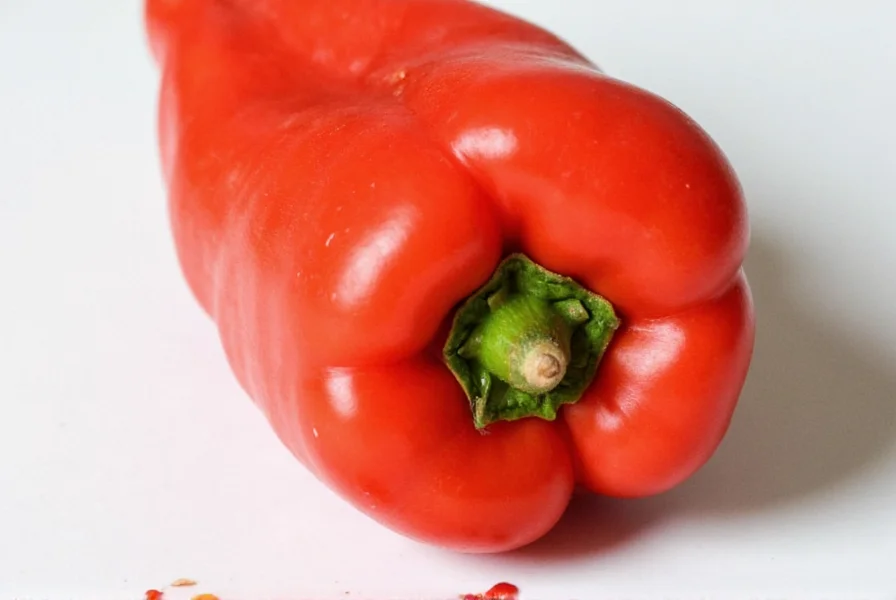
It starts life green and ripens to a deep red before being sun-dried. The drying process enhances both its color and heat level, making it perfect for adding vibrant heat to any dish. Its thin skin also makes it easy to toast and rehydrate, which unlocks a deeper, smokier flavor profile.
Flavor Profile & Heat Level
When it comes to flavor, chile de árbol is complex. It has a grassy, slightly woody undertone with hints of citrus and smoke. And when toasted, it develops a nutty depth that adds dimension to sauces and soups.
On the Scoville scale—which measures the heat level of peppers—chile de árbol ranges from 15,000 to 65,000 SHU, placing it somewhere between cayenne and Thai bird’s eye chilies. That means it’s not for the faint of heart, but still manageable for those who enjoy a bit of fire in their food.
| Pepper | Scoville Heat Units (SHU) | Typical Use |
|---|---|---|
| Jalapeño | 2,500 – 8,000 | Salsa, nachos, tacos |
| Chile de Árbol | 15,000 – 65,000 | Salsas, soups, mole |
| Cayenne | 30,000 – 50,000 | Spice blends, hot sauces |
| Thai Bird’s Eye | 50,000 – 100,000 | Curries, stir-fries |
Chile de Árbol vs Other Popular Dried Chiles
Understanding how chile de árbol stacks up against other dried chiles helps you make better choices in the kitchen:
- Ancho: Mild, sweet, and fruity. Perfect for moles and rich sauces.
- Guajillo: Medium heat with a tangy, tea-like flavor. Great in adobo sauces.
- Pasilla: Slightly earthy with dark fruit notes. Ideal for stews and braises.
- Morro: Similar in appearance but milder and sweeter than chile de árbol.
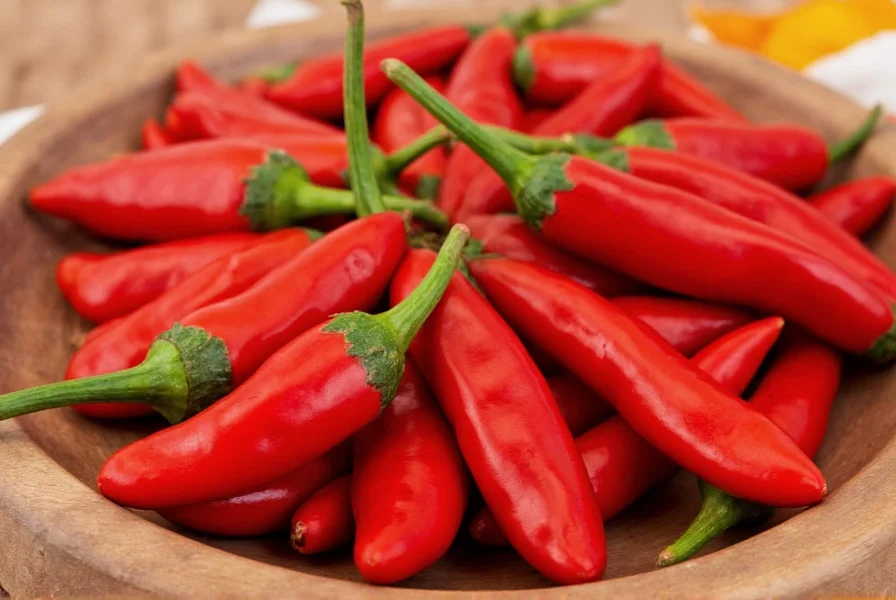
While most dried chiles bring sweetness or smokiness, chile de árbol stands out with its bright acidity and sharp heat—like the punk rock star of the chili world.
How to Use Chile de Árbol in Cooking
Now that we’ve established how spicy and flavorful these chiles are, let’s get practical. Here are some tried-and-true ways to use chile de árbol in your cooking:
- Toast and Rehydrate: Toast them in a dry skillet until fragrant, then soak in hot water or broth until soft. Add to sauces, moles, or salsas.
- Make a Smoky Salsa: Combine toasted chile de árbol with garlic, onion, tomatoes, and lime juice. Blend and serve with tortilla chips.
- Grind into Powder: Dry roast and grind into powder. Use it to season meats, soups, or homemade taco seasoning blends.
- Add Whole to Stews: Toss a few into simmering beans or tomato-based soups for a slow-building heat.
- Infuse Oil: Gently heat oil with whole chiles until aromatic. Use the infused oil for drizzling over tacos or roasted vegetables.
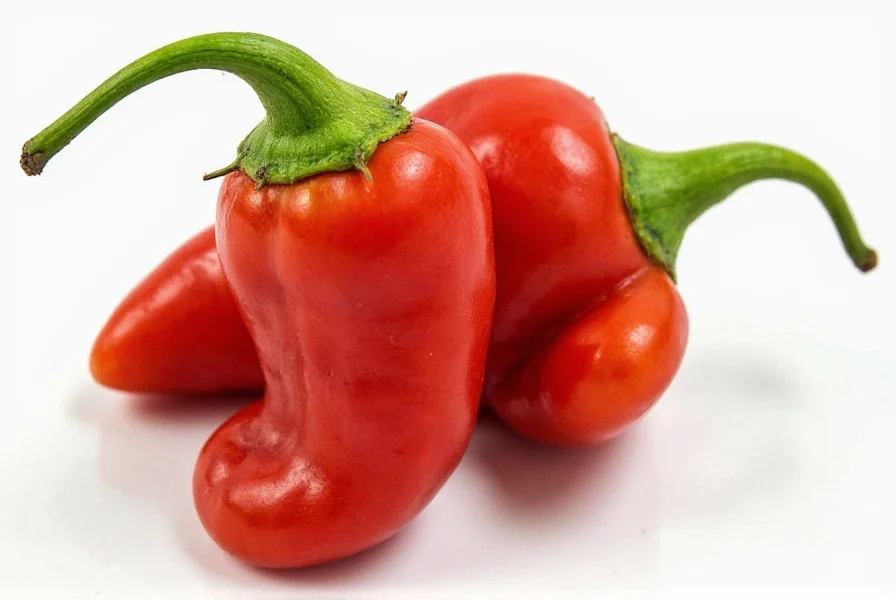
The beauty of chile de árbol is that it gives you options. You can go bold with whole chiles or finely control the heat by removing seeds or adjusting the amount used.
Buying Guide: Finding the Best Chile de Árbol
Not all chiles are created equal. Here’s what to look for when buying chile de árbol, whether you’re shopping at a local market or online:
1. Appearance Matters
- Look for bright red chiles with no blemishes or signs of mold.
- Avoid overly brittle chiles—they should be flexible enough to bend slightly without snapping.
2. Aroma Check
- Give them a sniff. Good quality chiles should smell fresh, slightly smoky, and aromatic—not musty or stale.
3. Buy in Bulk or Packed?
- Bulk bins allow you to inspect individual chiles before buying.
- Pre-packaged ones are convenient but may vary in quality depending on storage conditions.
4. Brand Spotlight: La Costeña Chile de Árbol
This popular brand offers consistently high-quality chiles in vacuum-sealed bags, preserving freshness and flavor. They’re ideal for home cooks who want reliable heat and taste without surprises.
- Features: Sun-dried, naturally processed, minimal additives.
- Advantages: Consistent flavor, easy to store, affordable.
- Best For: Everyday cooking, salsas, marinades.
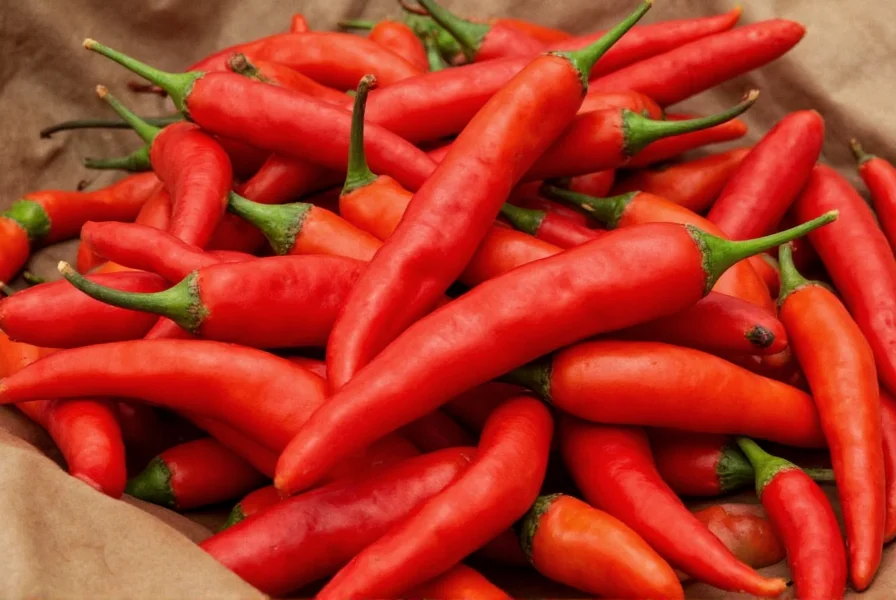
Storage Tips for Maximum Flavor
To keep your chile de árbol tasting its best, proper storage is key:
- Airtight Containers: Store in glass jars or sealed plastic bags away from light and moisture.
- Freezer Option: If you bought in bulk, freeze unused chiles in a ziplock bag to extend shelf life.
- Shelf Life: Up to 1 year if stored correctly.
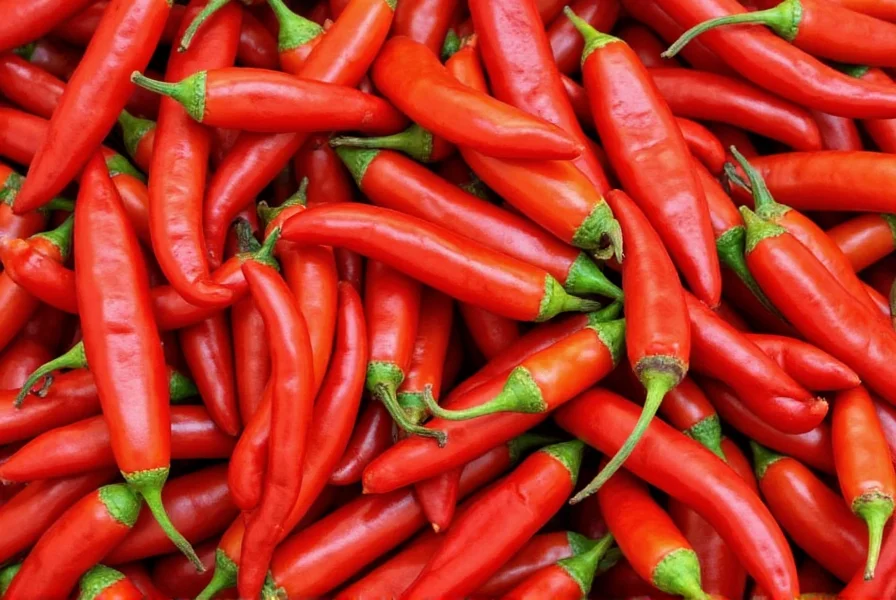
Pro Tip: Grind only what you need. Freshly ground chile de árbol powder has more potency and aroma than pre-ground versions.
Recipe Ideas Featuring Chile de Árbol
Ready to put chile de árbol to work? Here are a few delicious ideas to spark your culinary creativity:
Fiery Tomato Salsa
- Ingredients: Tomatoes, onions, garlic, chile de árbol, lime, cilantro.
- Method: Roast everything, blend, and chill. Serve with warm tortilla chips or grilled fish.
Smoky Chicken Tinga
- Ingredients: Shredded chicken, chipotle in adobo, chile de árbol, tomato sauce, onion, garlic.
- Method: Simmer until thick and shreddable. Serve in tacos or tostadas.
Arbol-Infused Olive Oil
- Ingredients: Olive oil, whole chile de árbol, garlic cloves.
- Method: Warm gently in a pan, cool, and strain. Drizzle over pasta, bread, or salads.
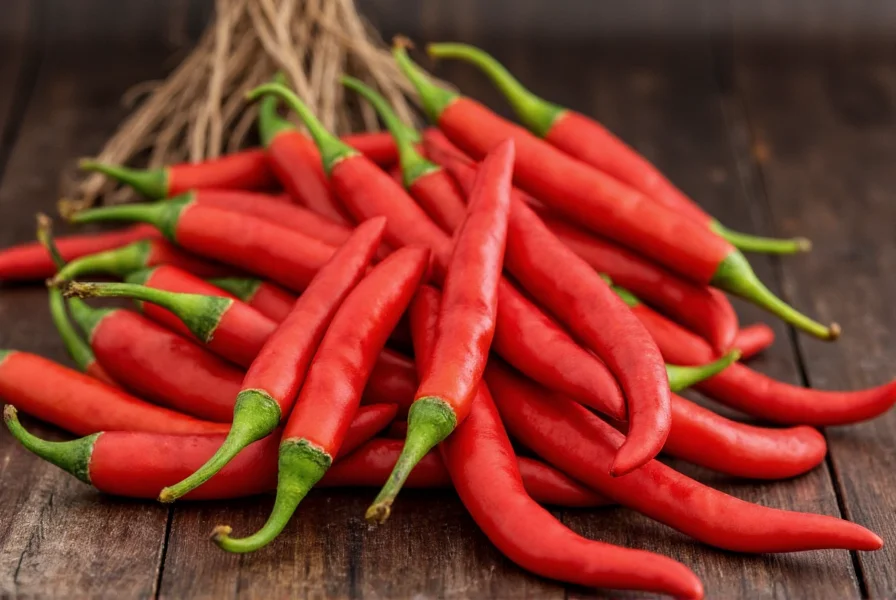
Conclusion
Whether you're a seasoned chef or a weekend griller, chile de árbol deserves a spot in your spice rack. Its intense heat, unique flavor, and versatility make it an essential ingredient for anyone looking to elevate their meals.
So next time you’re reaching for that bottle of Tabasco, why not give chile de árbol a try? With the right preparation and a touch of love, it might just become your new kitchen MVP.
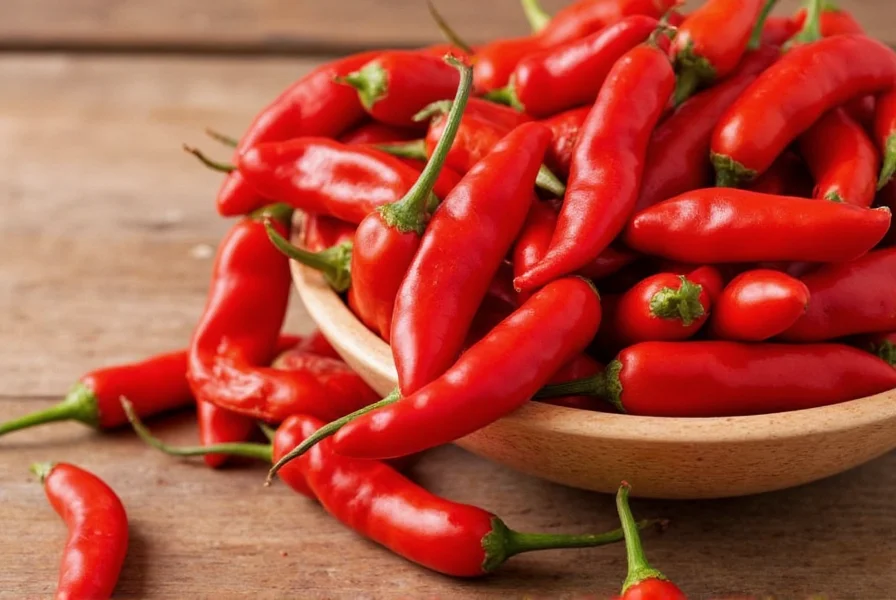

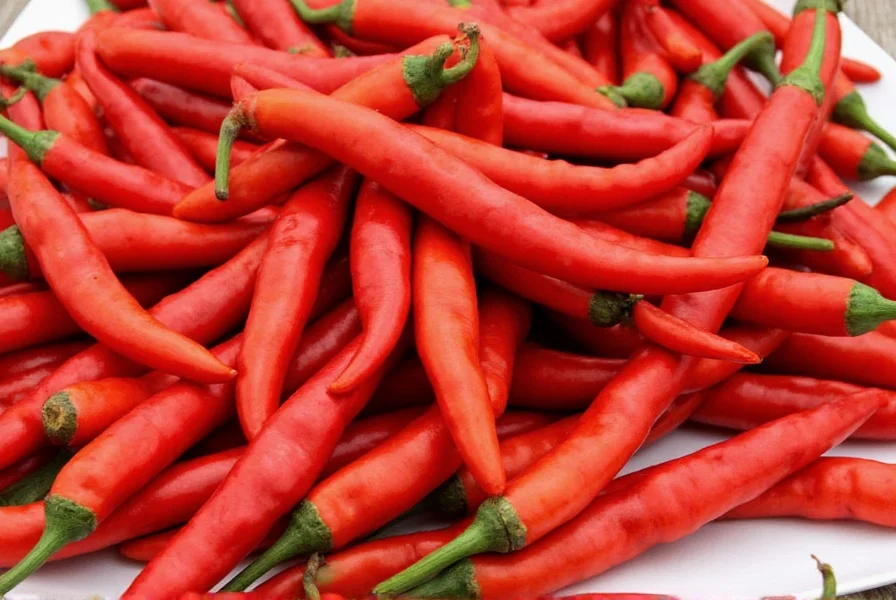









 浙公网安备
33010002000092号
浙公网安备
33010002000092号 浙B2-20120091-4
浙B2-20120091-4